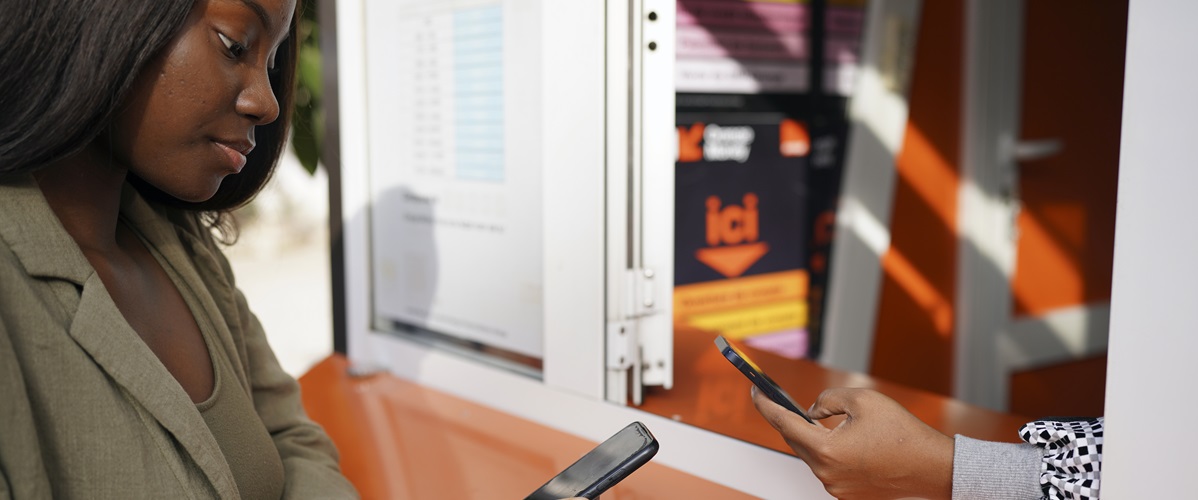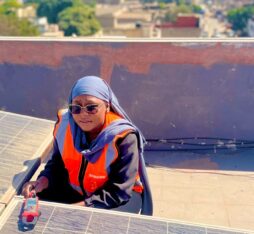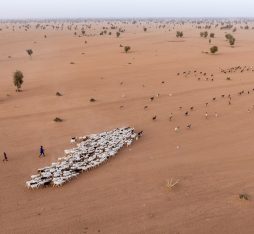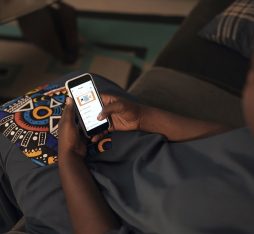· A sociology research project, based on a survey of small businesses in Senegal, examines the relationship between banking and mobile money.
· Collective dynamics play a decisive role in the adoption and use of banking and mobile money systems.
· Mobile money services are better suited to professional constraints and liquidity needs, without replacing banking services.
services enable people with a mobile phone, but not necessarily a bank account, to make deposits and money transfers, as well as payments. These services can be accessed directly from the mobile phone, via menus that can also be used on mobile phones and/or smartphone applications. Since the launch of M-Pesa in Kenya in 2007, Orange Money in Ivory Coast and Wari in Senegal in 2008, mobile money services have multiplied in sub-Saharan Africa. According to GSMA, in 2023, 156 mobile money services were operational in the region, i.e. half of the total number of services in operation worldwide [1]. The mobile money ecosystem is particularly dynamic in West Africa, which is described as the ‘mobile money’s new powerhouse’, with 68 active services and 356 million registered accounts in 2023 [1]. Mobile money services have helped to broaden and diversify access to financial services. Research carried out jointly by Orange Research and ‘Les Afriques dans le Monde’ laboratory (CNRS/Sciences Po Bordeaux) shows that mobile money use is becoming widespread among small business owners and self-employed people in the informal sector in the Dakar region, even though only half of them have a bank account, mainly with a microfinance institute [2]. With new financial services models spreading, what about the relationship with banks, for they have long been the main means of financial inclusion? A qualitative survey conducted in 2021 and 2022 among small Senegalese businesses reveals the many reasons why they open bank accounts. It also sets out the criticisms levelled at the banking model, particularly in relation to the professional organisation and the need for liquidity, and questions the alternative offered by mobile money.
Presented as an alternative to cash, it’s the relative ease of access to liquidity offered by mobile money that also justifies its adoption.
A variety of approaches to banking
In Senegal, the experience of banking is still in the minority. Opening an account with a bank is not a purely individual initiative, but part of a collective dynamic.
Banking may have taken place prior to and independently of entrepreneurial activity. This is the case, for example, for individuals who were previously students or employees in the formal sector and who opened a bank account in order to receive their study grants or salaries.
A bank account may also be opened after business launch in order to comply with payment terms requested by suppliers or customers to meet their own traceability requirements and legal formalities. In these cases, the various forms of interdependence with other players are crucial. Occasionally, one-off or long-term collaborations with government bodies, major national and international companies or NGOs operating in the area lead businesspeople to engage in banking, initially motivated by the receipt of payment in the form of cheques or bank transfers from these organisations.
However, even when bank accounts are opened as a direct result of professional activity, the people we met opened accounts in their own name rather than that of the business.
Small businesses’ dependence on digital platforms can also be another reason for opening a bank account; for example, when it comes to paying for advertising by credit or debit card on Facebook and Instagram.
Banking can also be an explicitly strategic move. Opening a bank account is then presented as a token of credibility and professionalism, necessary, for example, to obtain visas or loans. It may happen that two accounts are opened at two different banks, in anticipation of future cash needs, in order to maximise the chances of obtaining credit.
In addition, the justification for banking may be accompanied by negative judgements about accumulating cash. Experiences of theft, or stories of shops catching fire, give moral significance to opening an account with financial institutions. This is seen as a far-sighted attitude that can be collectively encouraged. This encouragement can be seen, for example, in the personal network’s proposals to put people in touch with these institutions. The network will play an advisory and supporting role in the various procedures. The choice of banking institution is made less as a result of a comparison between the different offers available than in direct relation to the personal and professional networking opportunities, and the resulting guarantee of trust.
Bank deposits and withdrawals to meet the constraints of professional organisation and the need for liquidity
However, opening a bank account does not necessarily mean long-term and irreversible commitment to the scheme, as has been observed in other research carried out in Dakar [3].
A number of respondents said that they had finally given up their bank accounts for reasons linked to the organisation of their business. For example, shopkeepers, door-to-door salesmen, craftsmen and itinerant traders, more than certain service providers (travel agencies, photo studios, computer equipment repair, etc.), insist that their activity is incompatible with regular use of bank services, and in particular the deposit and withdrawal of money, as the majority of their transactions are carried out in cash. Earnings are used either to purchase goods, sometimes on a daily basis, or to cover everyday expenses, whether related to the business or not. This makes it difficult for players to reconcile their day-to-day management needs with the banking system.
In this way, depositing profits in the bank is a regularly observed practice but it may also be abandoned along the way. This gradual abandonment of visits to the bank is also frequently motivated by the cumbersome process of going to the branch, having to fit the branch’s opening hours around those of the professional activity, having to travel a certain geographical distance, or having to endure queues.
A number of people also point to the “excessive” account maintenance fees charged by conventional banks. The amounts are considered unjustified, leading to suspicions of “ rip-off ” and “ theft ” on the part of the banking institution. Stakeholders consequently condemn these practices, as in the case, for example, of a retailer who sees the amount deposited in his account dwindle as the bank deducts account maintenance fees.
Merchants whose business is marked by strong seasonal variations, such as those in the tourism sector, are also less likely to adhere to the banking model. In times when “ money is tight ”, respondents have a very negative perception of account maintenance fees.
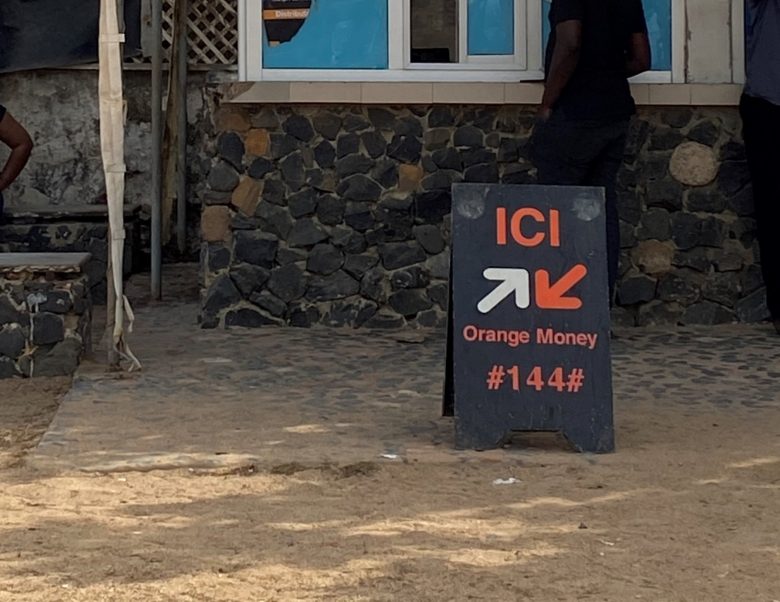
Mobile money as an alternative?
In contrast, the transactional services offered by mobile money are more likely to suit the professional constraints of small traders and entrepreneurs, and in particular their common need for liquidity. While bank branches are rare, mobile money providers rely on a large network of aggregated agents, operating exclusively for one brand, or for several, in dedicated or non-dedicated places.
In Dakar, more than in Saint-Louis, for example, there is a tendency for shopkeepers to normalise the use of mobile money especially among younger people who adopt it before starting their business, or to justify it as a dominant norm imposed by their customers.
As in the case of banking approaches mentioned above, customers play a key role in the adoption of these new practices. At the same time, merchants who deal with Western tourists report that they make less use of mobile transfers in their business than their counterparts with a Senegalese customer base.
But the relationship with customers is not the only type of interdependence that determines the adoption of this tool. Retailers whose suppliers are located in other towns and who previously used either the Post Office and cash orders, or a trusted carrier, are more likely to adopt mobile transfer. But here again, forms of rejection of the system can be observed, probably linked to factors other than professional organization (e.g., level of education, generational background, gender, etc.), which would require a broader survey to analyze.
However, the use of mobile money rarely means savings or long-term deposits in the mobile account. As with banking, the need for liquidity stems from these tradespeople’s organisational needs. For some, withdrawing the money they have deposited and keeping it as cash also enables them to avoid family requests for loans or long-distance transfers. Cash withdrawals can also be made as a precautionary measure to avoid fraudulent cancellation of the transaction by the customer. Merchants who describe themselves as “the wisest” transfer the sums collected to a second account that they have created for this purpose.
However, it should be noted that while mobile money offers reduced geographical and time constraints compared with conventional bank accounts, it does not completely eliminate those constraints. This is linked in particular to the habit of withdrawing the money received. As a result, tradespeople may no longer accept mobile transfers once nearby mobile money agents have closed, even if their business hours are longer than those of the mobile money agents.
While mobile money services have indeed helped to transform payment and transfer, not all the financial practices of tradespeople and entrepreneurs have been freed from dependence on conventional banks. Some economic collaborations with customers and suppliers oblige the most established players to incorporate cheques and transfers into their business activity. Banking remains a mark of professionalism that opens up the field of economic collaboration, particularly internationally. But above all, there is another reason regularly given for remaining loyal to the conventional banking system: for the more established, only banking institutions can provide loans commensurate with the investments deemed necessary to expand their business. In fact, the interviewees very regularly associate bank financing with business expansion, even when such expansion is merely a distant, idealised projection. The prospect of bank financing encourages some respondents to plan ahead and join the system early by opening a bank account, even if they remain critical of other bank services, pointing to cumbersome deposit, withdrawal and transfer procedures.
Conclusion
While conventional banking continues to be an unavoidable option for some of the interviewed “entrepreneurs”, it should not be forgotten that they are still in the minority in Senegal, as it is the case in most sub-Saharan African countries. What is more, the reasons for their loyalty to the banking model, i.e. collaboration with formal national and international institutions and businesses, expansion projects, etc., already testify to their relatively well-established economic position.
On the other hand, deposit and transfer services give mobile finance a clear competitive advantage over conventional finance, in particular because they meet the professional constraints of the less established players, and in particular their cash requirements. This is a paradox: while the financial inclusion project now goes hand in hand with a project to digitise money, its success with the unbanked populations is partly explained by their dependence on cash. It is the relative ease of access to cash via mobile money transfers and withdrawals that often motivates its use, even though it is presented as an alternative to cash.
And yet, whether we are talking about established players or more marginal ones, bank financing is still described by respondents as being essential when substantial funding is required. But this option remains controversial, as another part of the study underlines (cf. “Institutional funding and interpersonal solidarity in Senegal”).
Presentation of the field survey :
The survey is based on 45 interviews carried out in Dakar, in Saint-Louis and their regions over the 2021-2022 period, with small business owners and self-employed people, including craftsmen, shopkeepers, self-proclaimed “entrepreneurs” and service providers, in various sectors of activity -textile, food, electrical goods, catering, delivery, travel agencies, etc.
The 45 people surveyed included 16 women and 29 men, aged between 19 and 71.
None of the people interviewed comply with the accounting standards in force in the region, which puts their businesses in the informal sector according to the ANSD (national agency for statistics and demography in Senegal) criteria, even though most of them have taken steps to formalise their administrative procedures, i.e. national identification number and registration in the trade register.
The fieldwork was carried out thanks to the support and translation work of Mamadou Mountaga Toure and Fatoumata Ba.
Sources :
[1] GSMA (2024), “The state of the industry report on mobile money”, 2024 report.
[2] Gire, Fabienne (2021), “Entrepreneurs de l’informel à Dakar – Pratiques financières et mobile money – Analyses secondaires des enquêtes Orange/LAM 2017-2019“. Orange internal report (french).
[3] Martah, A. & Gire, F., “Financement institutionnel et solidarités interpersonnelles au Sénégal“, blog post Orange – Hello Future.
Read more :
- informal sector in the Dakar region, the uses of mobile phones and financial practices:
- uses of mobile phones in Africa:
- digital money practices and challenges:
Solution enabling access to financial services by mobile phone, e.g. deposits, transfers and payments, without necessarily having a bank account.
Unstructured Supplementary Service Data: text messaging technology enabling text transmission between a cell phone and a network application worldwide. USSD enables access to services managed by the mobile operator, for example by dialing #144# to access Orange Money in Senegal with a basic mobile phone.

